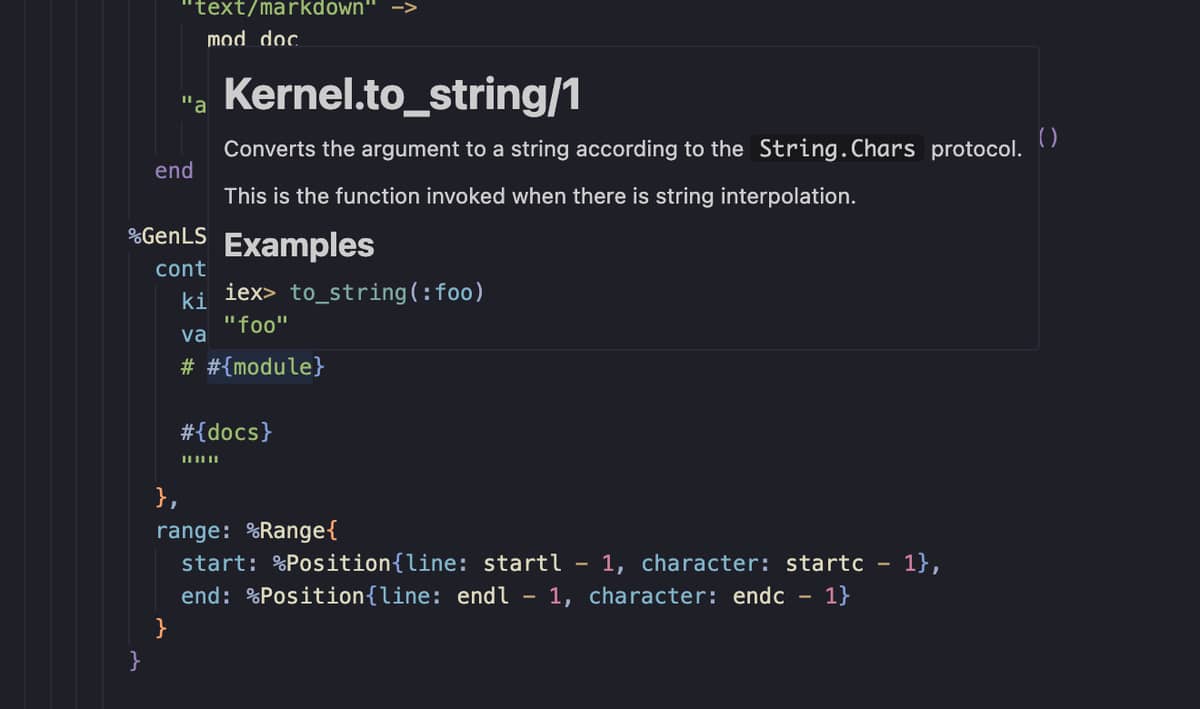I use the compilation tracers for Next LS to power its symbol/reference database used for definition/references/hover/workspace symbols etc.
Is there a way (or could there be a way) to know if a function/macro reference is from generated code?
Example
Consider the following code
%GenLSP.Structures.Hover{
contents: %GenLSP.Structures.MarkupContent{
kind: GenLSP.Enumerations.MarkupKind.markdown(),
value: """
# #{module}
^ hover on this location
#{docs}
"""
},
range: %Range{
start: %Position{line: startl - 1, character: startc - 1},
end: %Position{line: endl - 1, character: endc - 1}
}
}
With the tracers as they are today, if you were to hover on the above location, you would see the documentation for Kernel.to_string/1 as seen here
Now this particular example is because string interpolation syntax is compiled into something similar to <<"# ", to_string(module)::binary>> (I think the particulars of this is incorrect, but it is the gist of it).
Now, I wouldn’t consider this a huge problem, except that the range for this “reference” overlaps with the text of the variable binding module, which will interfere with using definition/references on that.
Question
So my question to end this is, is there a way the code from the trace is actually present in the source code?
cc @josevalim
Thanks!
PS: The mailing list details itself as the place to open proposals, and GitHub issues are for actual bugs, so I think Elixir Forum is still the place to ask clarifying questions like this. Please let me know if that understanding is incorrect























